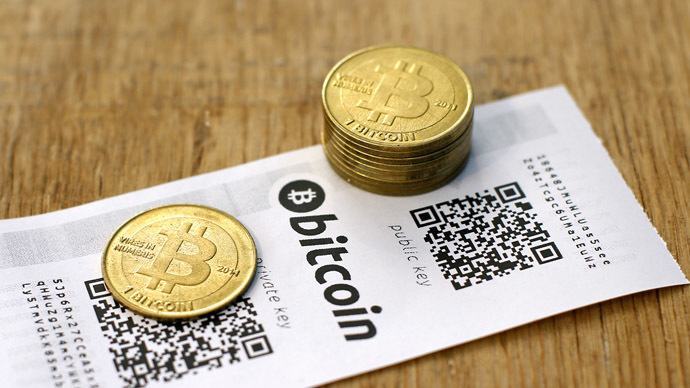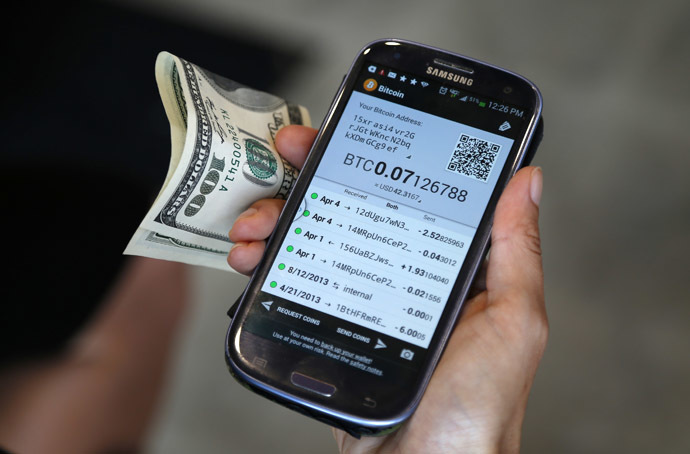Bitcoin: Baffling or brilliant?

Governments are struggling to understand bitcoin. Understanding history might help them better appreciate the Copernican revolution in money.
The establishment never deals easily with changes to its status quo. A cocktail of delay, denial and confusion is the usual heady mix which afflicts the governing classes as the bureaucracy wrestles with what art critic Robert Hughes deliciously described as “the shock of the new.”
With any form of innovation, the state sector tends to wrap itself in a fetal position and hope the problem goes away. Sometimes the problem is resolved by an outbreak of management decision making, or, the powers that be simply find a way to regulate the problem into their out tray.
Thus scientific breakthroughs we take for granted today, often spent many years in the wilderness being disputed. Some kept their biggest revelations hidden from the public for years. For example, the seminal ‘De Revolutionibus’ was finally published as Nicolaus Copernicus lay on his death bed. The polyglot Pole identified that the Earth orbited the sun (and not vice versa as the established church erroneously maintained). In one of his other genius missives, Copernicus discovered the theory that ‘bad money drives out good’ (sometimes referred to as Gresham’s Law after a later English advocate).
I have previously noted, the arrival of bitcoin is central to ‘the Copernican Revolution in Money’.
Before there was a single universe with central bankers at its core, while now we are entering a new multilateral galaxy with bitcoin and competing crypto currencies sitting at the core of each universe.
Meanwhile, governments are struggling with how to tackle bitcoin, which clearly threatens the hegemony of central bankers. That affects the ability of government to control the economy through cash manipulation - whether inflicting inflation, dictating interest rates or de facto economic terrorism such as the highly flawed government vogue, Quantitative Easing.
When providing ministers with ‘independent’ advice, central bankers clearly have a very significant conflict of interest. Appraising the future of money has a direct impact upon central bankers’ jobs, as their institutions are clearly threatened by bitcoin’s disintermediation of government money.
Long before central banks, in 1528 to be precise, Nicolaus Copernicus authored a paper ‘Monetae Cudendae Ratio’ for the Prussian diet to discuss the general theory of money. Five hundred years later, this paper bears an acutely pertinent title: ‘On the Minting of Coin’. Nowadays (bit-)coin mining is a digital process and not the analogue process of the Middle Ages, but the sentiment is the same.

Thus we reach a crucial issue. Some nations such as Norway have dramatically endeavored to sideline bitcoin while many others are vacillating. In Russia there are mixed signals although the current reaction to the sanctions tit for tat suggests Moscow is moving away from bitcoin liberalization. Clearly there are worries that the ruble moving to a free float is already endangered by recent sanctions activity, enabling a competitor may be viewed as unhelpful.
Meanwhile the UK is claiming to be entirely pro-bitcoin, at least if the finance minister is to be believed, but then again British regulators have already largely precluded mass crowdfunding from, well, involving a crowd. Nevertheless the UK appears to be broadly moving to liberalize bitcoin while the US has vestiges of openness but then again a proposal from the New York attorney general to liberalize bitcoin actually appears so prescriptive as to stymie the development of crypto currency. Meanwhile the European Union and their bank regulators have been - surprise surprise - keen to protect both weak eurozone banks and the flawed euro currency.
However in all this confusion, neither the progressive nor the reactionary factions have necessarily paused to consider well ‘On the Minting of Coin’ for starters. ‘Bad money drives out good’ is the operative concept here. In other words, a lower quality (i.e. overvalued) currency will circulate in the economy while any higher quality money (say gold coins, which have not been debased) will be hoarded by savers.
Therein lies the bitcoin conundrum - government money has always been debased, ultimately the political classes cannot resist it.
Moving forward, successful governments must ignore the biased advice from their cadres who mistakenly believe they can still control cash. Digital realpolitik is destroying the government money monopoly.
In the modern world, when politicians manipulate money, scarce, valuable crypto currency will be favored by savers throughout the world. In the past, authorities failed to search under every citizen’s mattress. Nowadays, politicians have no chance of finding every digital wallet.
Government must embrace bitcoin or die.
The statements, views and opinions expressed in this column are solely those of the author and do not necessarily represent those of RT.
The statements, views and opinions expressed in this column are solely those of the author and do not necessarily represent those of RT.













